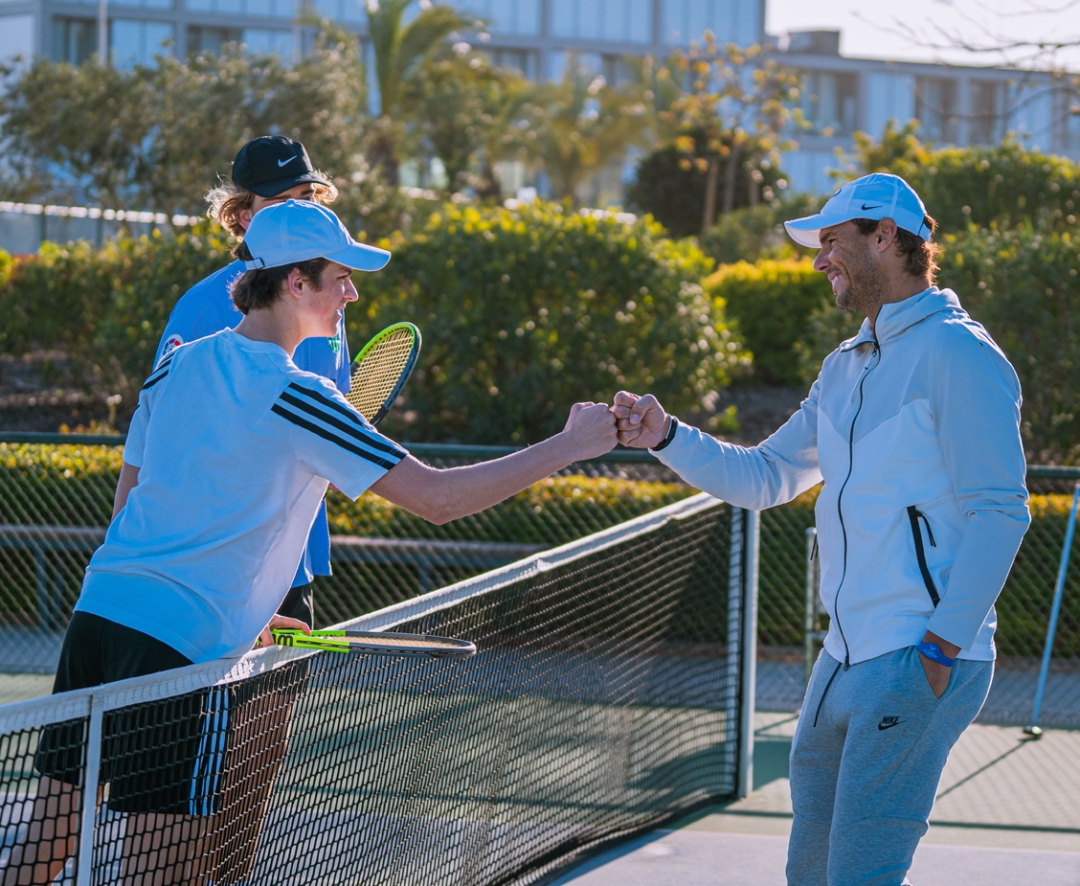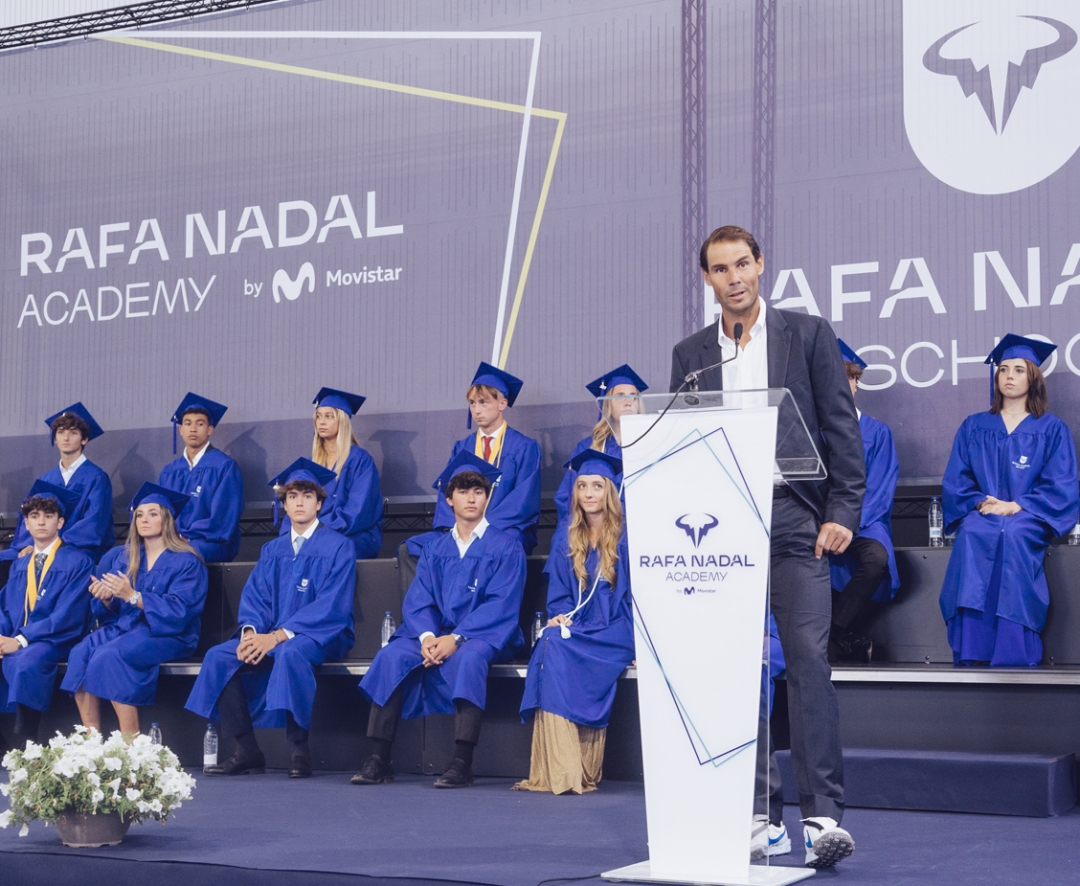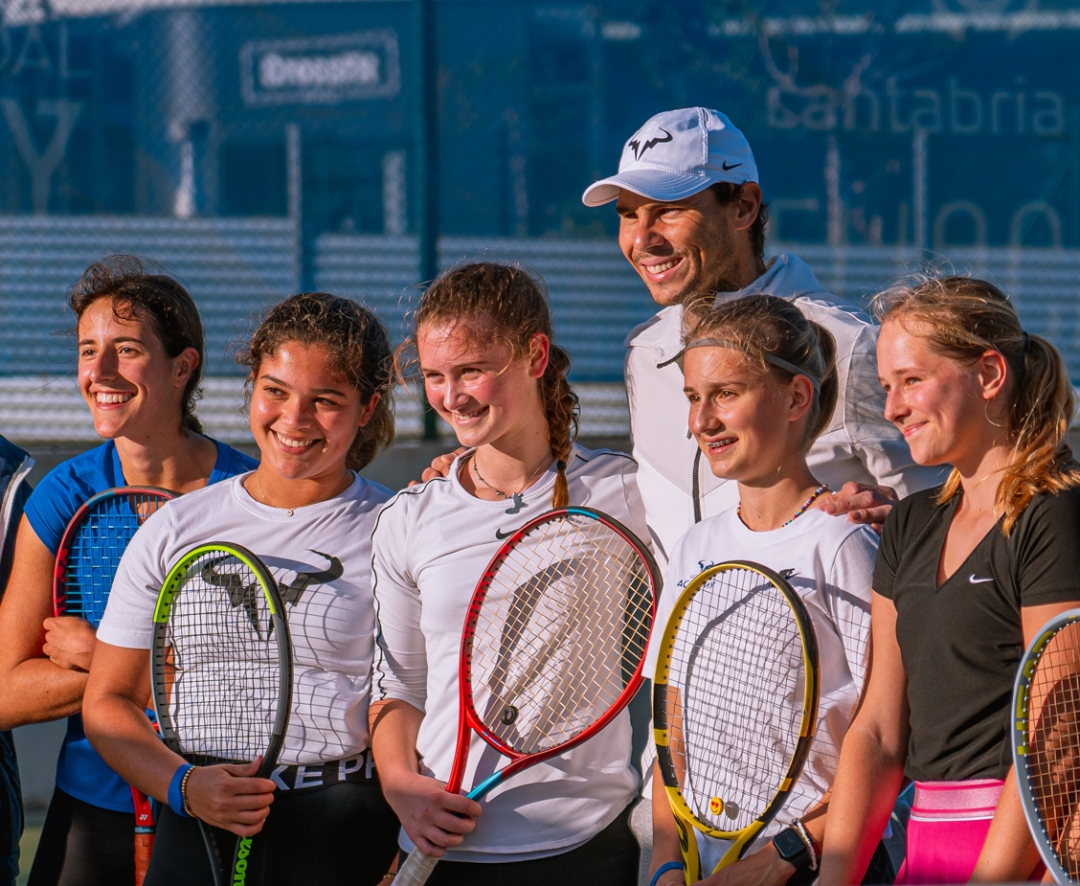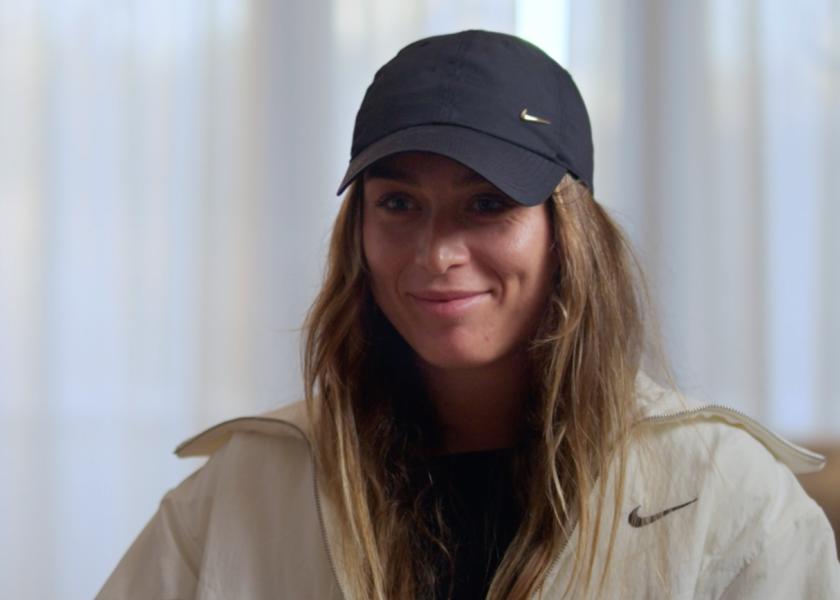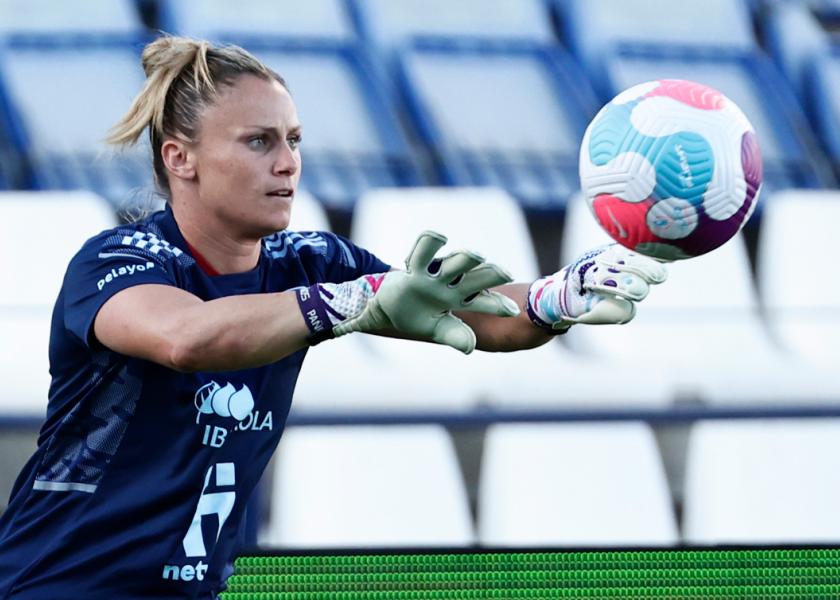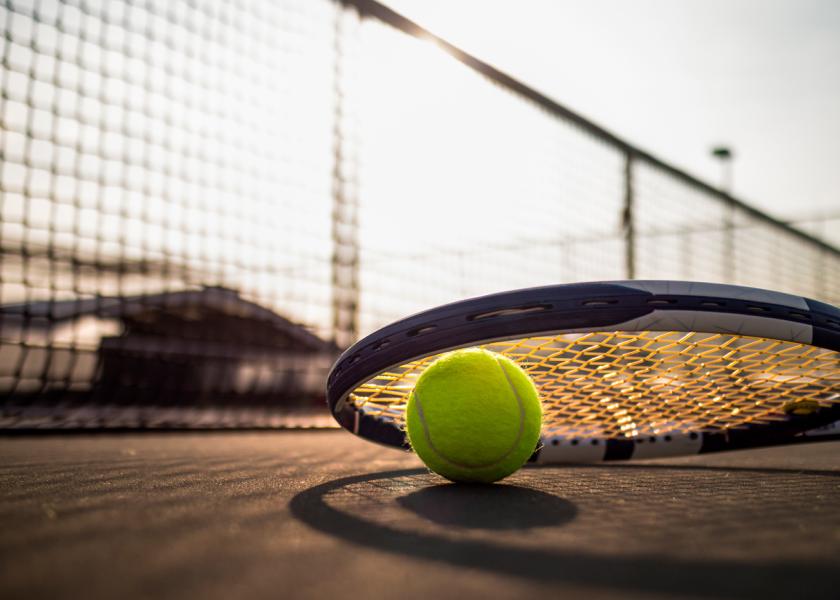Rafa Nadal
Winning talent
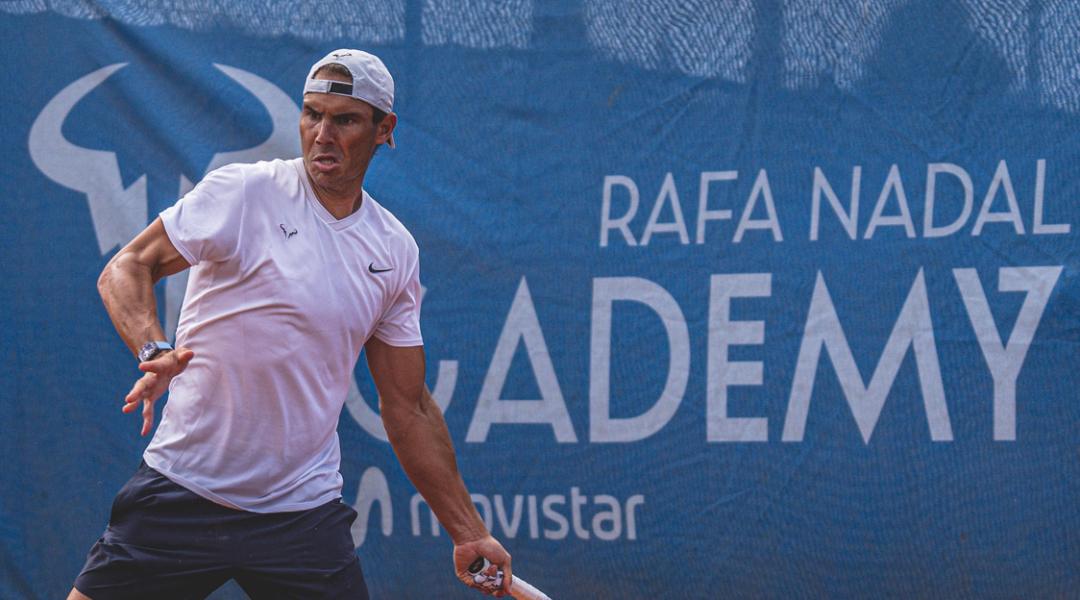
Once upon a time, there was a unique tennis player, capable of falling down and getting back up again and again, unable to give up or take a loss. Indeed, we’re talking about Rafa Nadal, and his Academy knows and conveys this story, a place where hundreds of youngsters dream of following this legend. But there’s no one better than the man himself to tell us first-hand about how talent is encouraged at the Rafa Nadal Academy.
Winning. It’s the yardstick for talent in tennis for Rafa Nadal (Manacor, 1986). And he knows about winning more than anyone. Throughout his career, he’s amassed 91 individual titles, including 22 Grand Slams —14 Roland Garros, four US Opens, two Wimbledon titles, and two Australian Opens—. A number that makes him the male tennis player with the most Grand Slams ever, up against tennis players such as Novak Djokovic (21) and Roger Federer (20). This winning talent is what he tries to teach at the Rafa Nadal Academy, alongside an experienced technical team. But not only this, because academic education and personal development aren’t overlooked either at his facilities.
Tell us, what work does the Rafa Nadal Academy do?
The Academy is an incredibly special place where we train young people so that everything they need is within reach. For me, it’s an extremely important project. I was young once, and I know how difficult it was for my parents to help me make my dream come true. School on the one hand, training on the other, tournaments... It took up a lot of their time. This is why we always knew we needed a full programme so that kids could have everything they need. I don’t mean it should be easy for them, because then things lose value, and they need some difficulties to strengthen their character. The main goal is for kids to leave the academy with positive values, so that they can use the knowledge and experience acquired for personal growth.
What is talent for you and how does the Rafa Nadal Academy promote it?
I think that talent is something people confuse a bit. Some people’s talent is hitting the ball hard, others, not missing a single shot, others, doing a great slice, and others moving really well, but with tennis, like with any sport, the ultimate goal is winning. That’s why, for me, the definition is clear: whoever wins is the most talented. At the Academy, we try to promote each player’s qualities to boost their talents, so they can meet their goal.
“With tennis, like with any sport, the goal is winning. That’s why, for me, whoever wins is the most talented”
With the perspective of hindsight, what advice would you give the Rafa Nadal who started wielding a tennis racquet?
I don’t give much advice, but I always say that to become a professional or devote your life to something, you need to put other things aside. My career has always been a priority, but I haven’t stopped going out with friends and enjoying myself, doing things that ordinary young people do, even though I might have done them less often. That’s the advice I’d give youngsters: don’t forget to enjoy yourself, fight for your dreams, and surround yourself with good people. That’s what we try to do every day with them at the Academy.
The phrase Work hard, have fun, and make it happen represents the DNA of the Rafa Nadal Academy; how does this translate into day-to-day life?
It’s important for young players to push themselves and work hard daily, but also for them to have fun, because they’re at the age to do so. At the Academy, they have a demanding schedule with training sessions, physical conditioning, and lessons, but there’s always time to have fun with friends and different leisure activities. And that DNA is what we’re also trying to export to other countries with the new centres we’ve opened in Kuwait, Greece, Mexico, and now Hong Kong.
“The advice I’d give youngsters is don’t forget to enjoy yourself, fight for your dreams, and surround yourself with good people”
Toni Nadal heads the Rafa Nadal Academy; what can students learn from him and the rest of the technical staff?
I’m really proud of the technical team we have at the Academy. To have brought together a team of great professionals gives me peace of mind that the day-to-day workings of the project are in the best hands. We have coaches with plenty of experience in every sense, especially within the professional circuit like my uncle Toni, Gabriel Urpí, Marc Gorriz, Joan Bosch, Joel Figueras, Gustavo Marcaccio, or Tomeu Salvá. This group leads the project, creating new work methods and training younger coaches. Players are lucky to learn from all of them, because they’re role models in terms of tennis, and good people.
In his talks, Toni Nadal always talks about perseverance —putting you as an example— as a key skill in the path to success, do you agree?
If I hadn’t had people guiding me along the right path, perhaps I wouldn’t have had that spirit of perseverance and desire to improve. Despite adversity, I’ve always had a good attitude and a positive spirit, and it’s something we try to convey to the kids. Because there will always be difficult moments, but the important thing is to accept them, work hard, and look forward with optimism.
How do you instil the importance of each training session among the young talent at the Rafa Nadal Academy?
It’s important to go to the training sessions eager to learn every day, and that’s what we try to teach them. Training for the sake of training makes no sense, you always have to go to the court with the purpose of improving something, even if you don’t achieve it. Mentally, that helps you to stay awake and active. I can’t picture life any other way.
One of the goals of the Rafa Nadal Academy is to help its students grow in sporting and academic terms, but also as people; how important is this?
For us, this point is essential. That’s why, from the first moment, we knew that having an international school within our facilities was fundamental. We want our personal development and academic education to be just as good or better than our tennis training, since many of the young people who come to the Academy won’t become professional tennis players and we want to ensure they have a good future.
“Mental strength is one of the key elements for competing. and that is something that I worked on with my uncle when I was a child”
In current top-level sports, are the technical and physical aspects as vital as the nutritional and mental aspects?
The circuit is at an exceptionally high level and that’s why, at the Academy, we don’t only have tennis coaches, but we also have an experienced team of physical trainers and a great health department, with nutritionists and sports psychologists that help players every day. I sincerely believe that all these aspects are important at these ages of education and learning.
One of Rafa Nadal’s main distinguishing traits is his mental strength, can it be trained?
Mental strength is one of the key elements for competing. Everything can be trained, and that mental strength is something that I also worked on with my uncle Toni when I was a child. Afterwards, as my career evolved, that work continued and the competition itself intensified it and made it continue to grow.
What’s more important: learning how to compete against others or against oneself?
All elite sports are complicated, and tennis in particular since it’s a one-on-one sport. The match is against a rival who’s sometimes better than you, or who’s in better shape that day although they may be worse in theory. But sometimes the fight is also against oneself and that’s something that’s hard to handle sometimes. We’ve seen it in many cases. That’s where mental work is especially important.
“I’m not sure I’d be the best person to train a player... For now, I’m not considering it, but never say never”
The Rafa Nadal Academy prepares its students for the tennis of the future, a sport that will lose its big role models in the medium term (Federer, Djokovic, yourself). Is there anyone to take over?
In tennis, succession has always been generational. We’ve had big stars that have been replaced by others, it’s normal. Perhaps in our case, what’s happened is that we’ve been doing this for many years, but I’m sure that whoever comes along will be here to stay and will take over.
Have you ever imagined what Rafa Nadal as an ex-sportsman will be like? Do you see yourself training future rising stars at the Rafa Nadal Academy?
I’m sure someday I’ll be an ex-elite sportsman, but I’ll always be a sportsman because sport is my passion, and I’ll keep practicing as long as my body lets me. I’ll always be involved in the Academy, which is a project we started a few years ago and that’s gathering more and more strength. I even hope to be able to spend more time on it than I currently do, since I still compete and travel around the world. At the Academy there are all sorts of players and I hope that some future rising tennis star is already among us. I’m not sure I’d be the best person to train a player... For now, I’m not considering it, but as the saying goes: “Never say never”.
